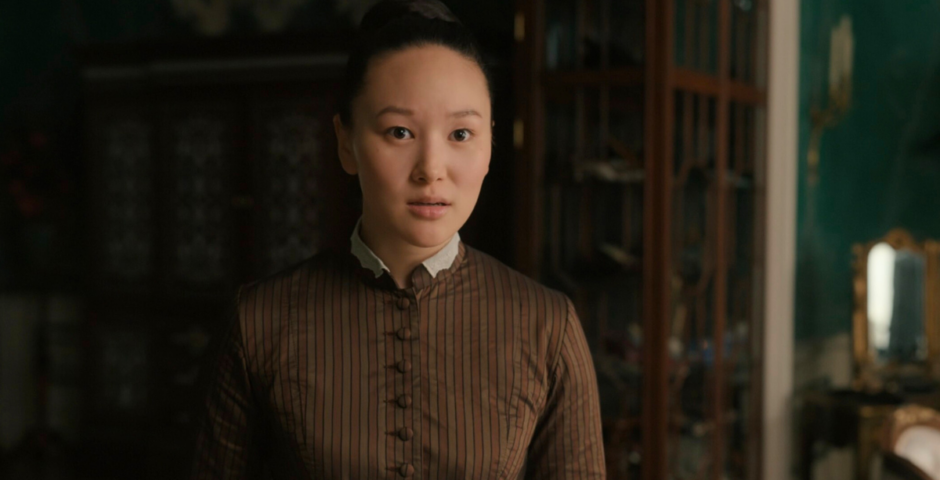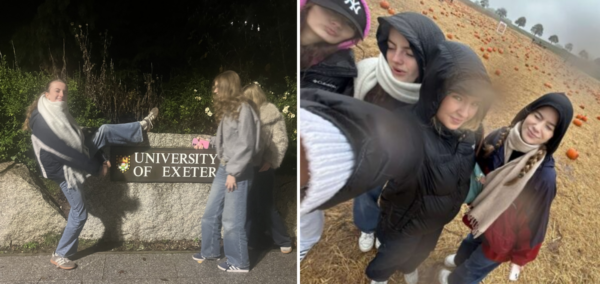
Preview: YERMA
Lorca’s tragedy returned, in translation, to its roots
This week, from Friday to Sunday, Trinity College Cloisters will replicate rural 1920s Andalusia as the Dryden Society presents its production of Yerma. Written in 1934 by Federico García Lorca, Yerma is the tragedy of a woman’s desperation in face of societal pressure and her own desire to have a child (“yerma” means “barren” in Spanish). The play sits alongside Blood Wedding and The House of Bernarda Alba to form the Spanish playwright and poet’s renowned Rural Trilogy of plays. In recent years, adaptations have often aimed to modernise the play: the National Theatre’s 2016 production achieved great success with a staging that relocated the play to contemporary London.
In this production, however, co-director Dylan Stewart explains to The Tab that the aim is to bring the play back to its roots. Its creative direction is driven by a respect for authenticity – which is why Stewart spent the last summer crafting an original translation of the play. By translating the script himself, he says, he is able to maintain a closer hold on its original textual features: imagery of shepherds, olive groves, and – as the fragments I witnessed in rehearsal made strikingly apparent – a motif of thirst and water underscoring Yerma’s childlessness. The actors, he says, are also more able to play around with their lines as they settle into their roles, enhancing the natural feeling and authenticity of their portrayals.

Image credits: Dik Ng
Most Read
Further re-rooting the play in its original context is the decision by Stewart and co-director Robin Stephens to include a strong musical element: guitarist Xavier Cooke will be visible onstage for the duration of the play, strumming traditional Spanish music; Lexie Graham will lend her voice to moments of Spanish song. To top it off, Stewart promises a flamenco in the play’s finale.

Image credits: Dik Ng
When asked how the adaptation will tackle Lorca’s surrealist style, Stewart revealed that he intentionally left the play’s most heightened moments of surrealism untranslated. Surrealism, he points out, isn’t necessarily meant to be understood, anyway; keeping these moments in their original Spanish amplifies their obscurity for an English-speaking audience. Stewart also highlights the influence Greek tragedy had on Lorca’s style, and explains that their production will incorporate a five-person chorus as the voice of the ever-present townspeople.
In the rehearsal I sat in on, blocks and chairs sufficed to mark out the set, but Stewart describes the vision that he and Stephens developed for set and staging as a delineation of spheres. On one end of the stage will sit the “inside” sphere of a rustic house, and, on the other, the “outside” sphere of an olive grove (this will be particularly interesting considering the choice of Trinity College Cloisters as a half-inside/half-outside setting). Stewart makes a point of having something always occurring in both spheres at once, often with Yerma (Lucy Miller) in one sphere and her husband, Juan (Hector Day-Lunn), in the other, to spatially enact the couple’s division within marriage. Miller and Day-Lunn, when they do come together in a scene, create a tension that flickers with an undertone of violence.

Image credits: Dik Ng
In the few scenes I saw rehearsed, Lucy Miller’s Yerma promises to yield many moods in her stages of desperation. She performs deep sadness with a face stuttering in the ghost-memories of things never possessed. Miller’s ability to mold her energy on her partner in any given scene shows a real understanding of Yerma’s psyche, and of each distinct relationship she plays a part in. With Coco Lefkow-Green‘s Maria, depending on the scene, Miller is adept in reflecting the other woman’s sweet and affectionate enthusiasm, or in cutting through it with the bitterness of her own yearning. In a brief but charged moment between Yerma and Victor (Jay Palombella), the actors’ chemistry makes context unnecessary – I don’t need to know the details of their relationship to see that these characters share a past that bleeds into the present.

Image credits: Dik Ng
Witnessing Stewart in direction, I can see the truth of his claim that this is an intensely collaborative project. He makes a point of the actors having responsibility of their characters, particularly this far into the rehearsal process, when they are far more intimately acquainted with their roles than the directors could be. I see this play out in the discussions between cast and director after running through a scene: Stewart asks the actors how they felt in the scene, what they found difficult or not quite right, before giving his own feedback. Actors might voice any uncertainties of their character’s motive in a scene, and the director’s clarifications are receptively incorporated in the second run.
This is an incredibly promising production that embraces the authenticity and universality of its themes. I will be eager to see the culmination of a year’s passion and work play out this weekend– I hope you will be, too.
Yerma is showing Friday 8th March – Sunday 10th March at Trinity College Cloisters. Tickets are available here.
Related articles recommended by the author:
- Preview: Romeo and Juliet
- Review: BME Shakespeare’s Antony and Cleopatra
- Cambridge’s Trinity College receives legal warning for investment in arms companies
Feature image credits: Ella Rowold Cavusoglu
















